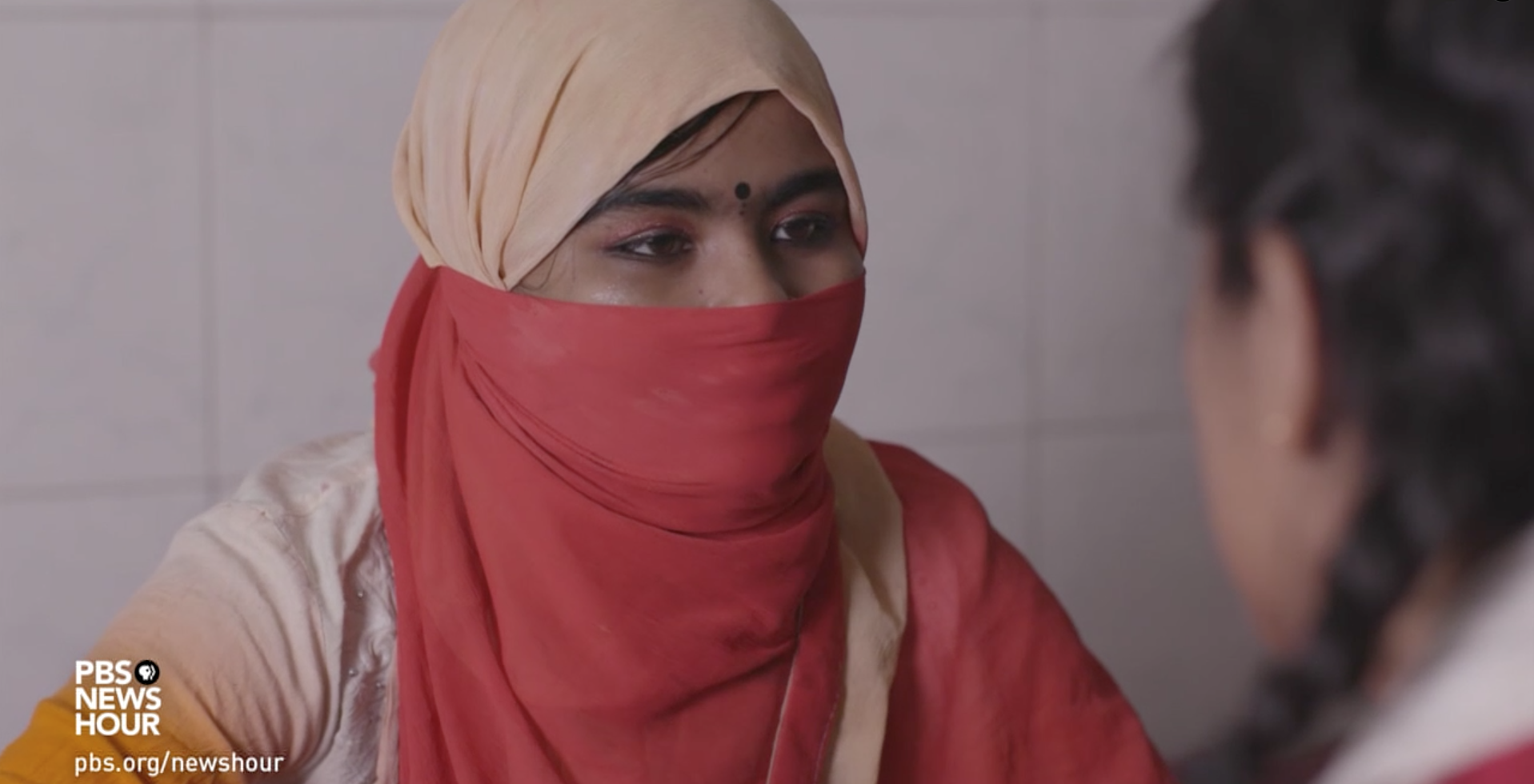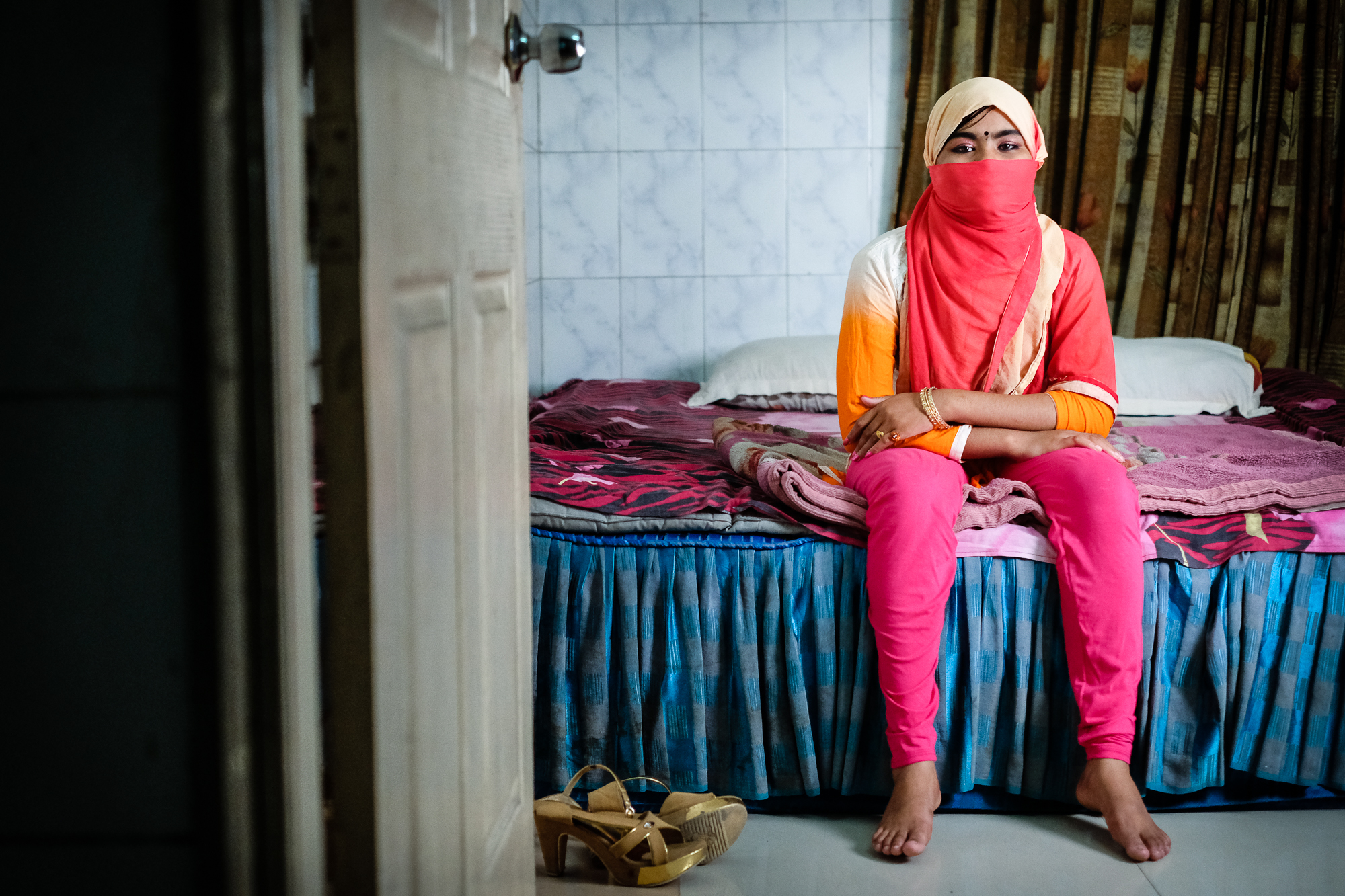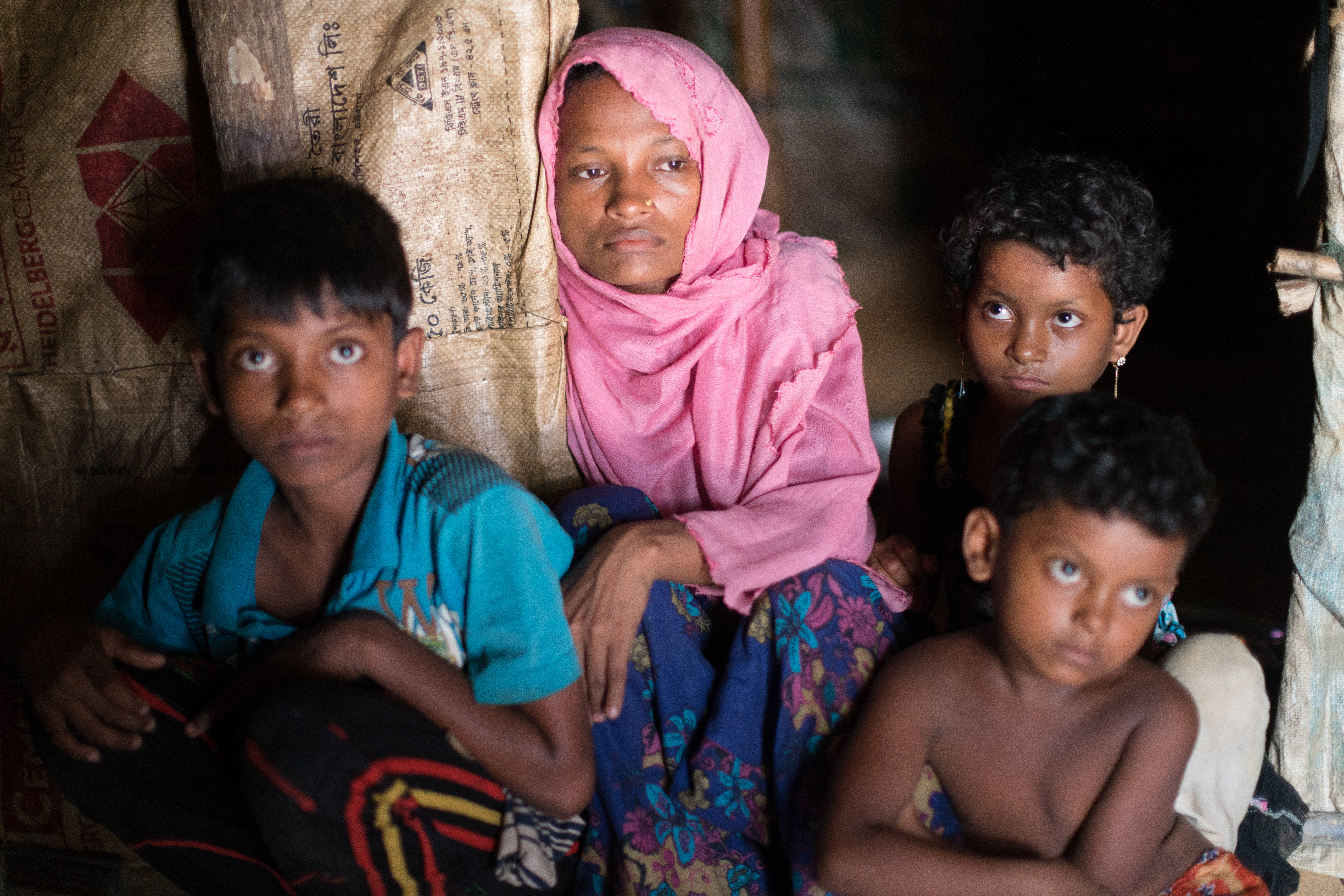
Read the Full Transcript
John Yang:
We want to tell you up front. This next story is not suitable for children. If your kids are in the room, please turn us off and come back in about 8.5 minutes when Paul Solman helps make sense of what some call the bitcoin bubble.
Even for adults this is a disturbing story, but an important one. Special correspondent Tania Rashid and videographer Philip Caller take us inside the dark world of human trafficking in Bangladesh. Horrific things are done to young girls.
This the final installment of their three-part series in partnership with the Pulitzer Center on Crisis Reporting.
(BEGIN VIDEOTAPE)
Tania Rashid:
At a checkpoint on the main road leading from the camps, Bangladeshi soldiers aren’t looking for guns or drugs, they are searching for Rohingya women being trafficked into sex work.
The majority of Rohingya refugees are women and girls, many are poor and without a male breadwinner. They are vulnerable to traffickers looking to make fast money by recruiting girls into the Bangladeshi sex trade.
Soldiers stop vehicles they suspect could be used by traffickers, and passengers are asked to show their national ID cards. According to the army officer in charge of this checkpoint, around 10 Rohingya girls attempt to pass every night. As the night goes on, the searches continue. They look inside buses and motorized rickshaws known locally as CNGs, questioning passengers.
Man (through translator):
What school did you go to? You, count to 10.
Tania Rashid:
Rohingyas and local Bangladeshis can have similar appearances which makes it hard for the soldiers to identify who is who.
Man (through translator):
Show me your cards.
Man (through translator):
Where did you come from? Where are your ID cards?
Tania Rashid:
The army has been stopping several CNGs on the road, and they suspect one of the girls in this vehicle is a Rohingya.
Man (through translator):
Get out. Tell me the truth. I know you are Rohingya. Who is leader of your block at the refugee camp?
Tania Rashid:
As it turns out , the woman right there is Bangladeshi and she’s helping take this woman who is a Rohingya into Cox’s Bazar.
The soldiers question them and search their bags. They say that the Rohingya woman is being trafficked for sex work and that the Bangladeshi woman travelling with her is her trafficker. They recruit Rohingya girls and women from the camps and traffic them into Bangladeshi towns and cities. After detaining the group for a few hours, soldiers decide to send the two women back to the camps and keep the man for further questioning.
Back in Kutupalong, the biggest camp, the sex trade is thriving and the influx of tens of thousands of vulnerable women is fuelling the business. Most Rohingya refugees come from insular, conservative Muslim families, and sex work is taboo.
Camp brothels are hard to spot. They look like ordinary shelters made of bamboo and plastic sheets.
This woman whose name and face we conceal to protect her identity started sex work out of desperation to feed her two children after her abusive husband left her for another woman.
Woman (through translator):
The food handout is not enough. When my kids cry for rice, where will I get it from? I’m only doing this to support my family, I feel bad doing it but I have to survive somehow.
Tania Rashid:
She is one of four Rohingya women working in this brothel.
Woman (through translator):
I see one, sometimes two men per day, for about 20 minutes, 15 minutes to one hour. They give me two to six dollars. The men come from different backgrounds, some are poor, others are rich, they are mostly Rohingya.
Occasionally, I see Bangladeshi men as a clients. They make me do bad things to them and make me work really hard. When I do it, I’m so ashamed, so I only take my pants off.
Tania Rashid:
Cox’s Bazar is the nearest city to the camps, infamous for its thriving sex trade, fuelled by tourism.
I’m on my way to meet with a Rohingya sex worker. They normally travel in auto rickshaws like this one from the camps into the city center.
This girl is only 15 years old. She fled from Myanmar to Bangladesh six months ago. We concealed her face and name to protect her identity.
Woman (through translator):
The Myanmar soldiers grabbed hold of me, they beat me, tied my hands and feet and hung me from a tree.
Next to me, there was another woman. The soldiers cut her belly and vagina. They cut off her breasts and put them in plastic bag. I started screaming and a solder bit a piece of my cheek off. Then they pulled me down and gang-raped me.
Afterwards, they stabbed me and dumped my body into the river thinking I was dead. I can’t remember much after that. I lost so much blood that I was unconscious more than three days. Somehow I managed to swim across the river and get to Bangladesh. I swam alone.
Tania Rashid:
But life in the camps was tough, she turned to selling drugs to survive. After getting caught and spending two months in jail, an older Rohingya woman made her an offer.
Woman:
My friend said why don’t you run away from the camps. I know people who can help you. Do you want work in a garment factory? I said yes.
Tania Rashid:
But her friend was actually a trafficker who recruits young Rohingya girls into sex work.
Woman:
A car picked me up from the camp and took me down the main road to Cox Bazar. Nobody stopped me at the checkpoints, as the pimps are friends with the army. They took me to a brothel.
Tania Rashid:
She now works seven days a week and gets $1 per client after the pimp takes his cut.
Woman:
I saw five men at the same time today. They are raping me the same way the Myanmar soldiers raped me. They pin my hands to the bed, force my legs open and thrust so hard it hurts.
Tania Rashid:
Her pimp gives her drugs for the pain and steroids to make her look healthy.
Undercover filming in a Cox Bazar’s brothel reveals that the recent influx of tens of thousands of vulnerable girls has meant that they are now full of underage Rohingya.
I’m at a secret location at the edge of Cox’s Bazar where I am about to meet with a pimp who traffics Rohingya girls into prostitution.
This pimp has seven Rohingya girls that he sells. He says that the refugee crisis is good for business.
Man (through translator):
Rohingya girls have a very Burmese look. It’s different. They have lighter skin. They are prettier and taller. Young Rohingya girls from 12 to 14 sell the most. Clients love fresh flesh. The little girls have more to give.
Tania Rashid:
He says the easiest way to get the girls is to prey on their vulnerability.
Man (through translator):
When the Rohingya girls arrive in Bangladesh, they don’t know anything. They are so innocent, scared, and unaware. I tell these little girls, look you have nobody, I’ll marry you, but we need money to get married.
Rohingya girls are easy to convince. I have sex with all my girls, I take their virginity. Then I share them with the clients.
Tania Rashid:
What sorts of clienteles visit these girls? Are they Bangladeshi men, or — who are they?
Man (through translator):
Most of the clients are Bangladeshi tourists, but about once or twice month I have foreigners, white men, Americans, Europeans. They stay in the big hotels and keep the girls for two to three days. I don’t speak directly to the white men. Usually, a hotel manager calls me and asks me to send over photos, they are the liaison.
Tania Rashid:
Many Rohingya women who fled violence end up in desperate situations, both inside and outside the camps. Their precarious circumstances make them easy prey to those that seek to exploit them.
For the PBS NEWSHOUR, I’m Tania Rashid in Cox’s Bazar, Bangladesh.

Education Resource
Meet the Journalists: Phil Caller and Tania Rashid
Special correspondent Tania Rashid and filmmaker Phil Caller produced three video reports about the...







